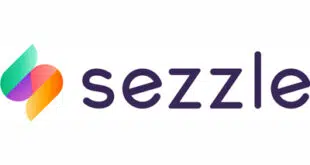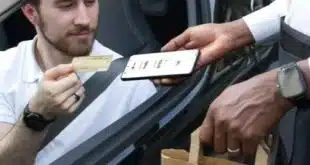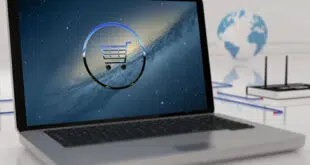The massive deal PayPal Inc. and Discover Financial Services announced on Wednesday that will bring online-payments leader PayPal to 7 million physical U.S. merchant locations has all the hallmarks of electronic payments in the 21st Century’s second decade, including digital wallets and cloud-based technology. But the foundation of the deal is solidly 20th Century: a huge increase in the number of PayPal’s magnetic-stripe, private-label payment cards in the coming months.
PayPal and its parent company, eBay Inc., haven’t revealed how many of the PIN-based cards are outstanding today, but industry analysts say the number is very small. That will change radically beginning in October. “PayPal is going to issue plastics to [its] 50 million or so active U.S. account holders,” Joby Orlowsky, vice president of strategic initiatives at Riverwoods, Ill.-based Discover, tells Digital Transactions News.
The new cards will be different from the existing ones. They will still have only the PayPal logo, not Discover’s, but they will have new numbers in a range of numbers assigned to Discover. In that way, merchants will be able to accept PayPal’s card without any new hardware or software, as the companies advertised Wednesday.
The cards will remain PIN-based, but if a Discover merchant doesn’t have a PIN pad, the transaction will still go through with a swipe, according to Don Kingsborough, vice president of retail at San Jose, Calif.-based PayPal. “There’s virtually little that the acquirers or the merchant has to do to accept PayPal,” Kingsborough told analysts in a conference call.
While the transactions will flow over Discover’s network and generate revenue for Discover, PayPal will be in charge of most aspects. “This will be branded PayPal, operating rules PayPal, and pricing PayPal,” Kingsborough said.
If it succeeds, the Discover partnership will enable PayPal to realize its dream of becoming a payment option for nearly all U.S. merchants that accept general-purpose credit and debit cards. Discover acquires transactions directly for about 1,500 large, national merchants, and through relationships with 135 bank card acquirers is accepted by about 95% of U.S. locations that take Visa and MasterCard. “You have to be wherever the consumer wants to shop,” said Kingsborough.
A lot of work lies ahead, however, before the program goes live by the companies’ deadline of 2013’s second quarter. Discover’s big job is to acquaint its direct merchants and partner acquirers with PayPal. That project is already under way, according Orlowsky, who says Discover is making them familiar with PayPal rules, branding, and related operations. “We’re spending a lot of time and effort in pushing out the PayPal brand to the merchant community,” says Orlowsky. “We’re quite confident that by the second quarter we will have a quite an acceptance footprint,” adding that, “We’re not pegging a specific number.”
PayPal, in addition to cranking out a lot of plastic, will roll out what looks to be a massive marketing program. “When we get to April there will be a full consumer program that is going to be launched to build awareness,” said Kingsborough.
That campaign is likely to reinforce the fact that users can link their digital wallets to the PayPal card, wallets that can be funded by Visa, MasterCard, American Express, and Discover cards as well as bank accounts, and access eBay’s BillMeLater credit service. PayPal users also will be able to access the gift cards, electronic coupons, and other features of their PayPal mobile wallets when they make point-of-sale transactions, according to Kingsborough. “Our card is really not a credit card or any existing type of payment card, it is really a token that goes to the cloud,” he said.
Sixteen merchants, including The Home Depot Inc., already accept or are preparing to accept PayPal at their checkout counters, and eBay expects about 20 by year’s end. While the new plastic cards are the key to PayPal’s lightning-speed POS expansion, Kingsborough said he expects PayPal’s mobile-payments technology will come to merchants later. PayPal processed $4 billion in mobile volume last year and expects 2012’s volume will come in at $10 billion. That means PayPal is ahead of a raft of other competitors, including the hot Square Inc., which recently struck a deal with Starbucks Corp.
The Discover-PayPal relationship goes back 11 years. PayPal provides the backbone for Discover’s Money Messenger person-to-person payments service, and Bill Me Later transactions go over Discover’s network. And besides their huge U.S. deal, the companies seem likely to work together on bringing PayPal to physical merchants abroad. Orlowsky notes that Discover has access to more than 20 million merchants in 180 countries through its Diners Club International network. And PayPal operates in well over 100 countries and has about 60 million international account holders.
“We see this marriage as being broader than the U.S.,” says Orlowsky, though he says he can’t offer further details.
Consultant and former Visa executive Eric Grover calls the Discover-PayPal deal “an interesting alliance, which bears watching. For PayPal it’s one big step closer to becoming a full-spectrum retail payment network.” PayPal, however, “needs to incent consumers to spend with PayPal in lieu of their wallet full of AmEx, MasterCard, and Visa products.”
Rene Pelegero, a former PayPal executive who is now president and managing director of Retail Payments Global Consulting Group, Woodinville, Wash., calls the tieup a “good deal for Discover” because of the incremental volume it should generate for the network. And it means access to millions of physical merchants for PayPal. But revenue sharing with Discover threatens to cut PayPal’s transaction margins, he warns.





